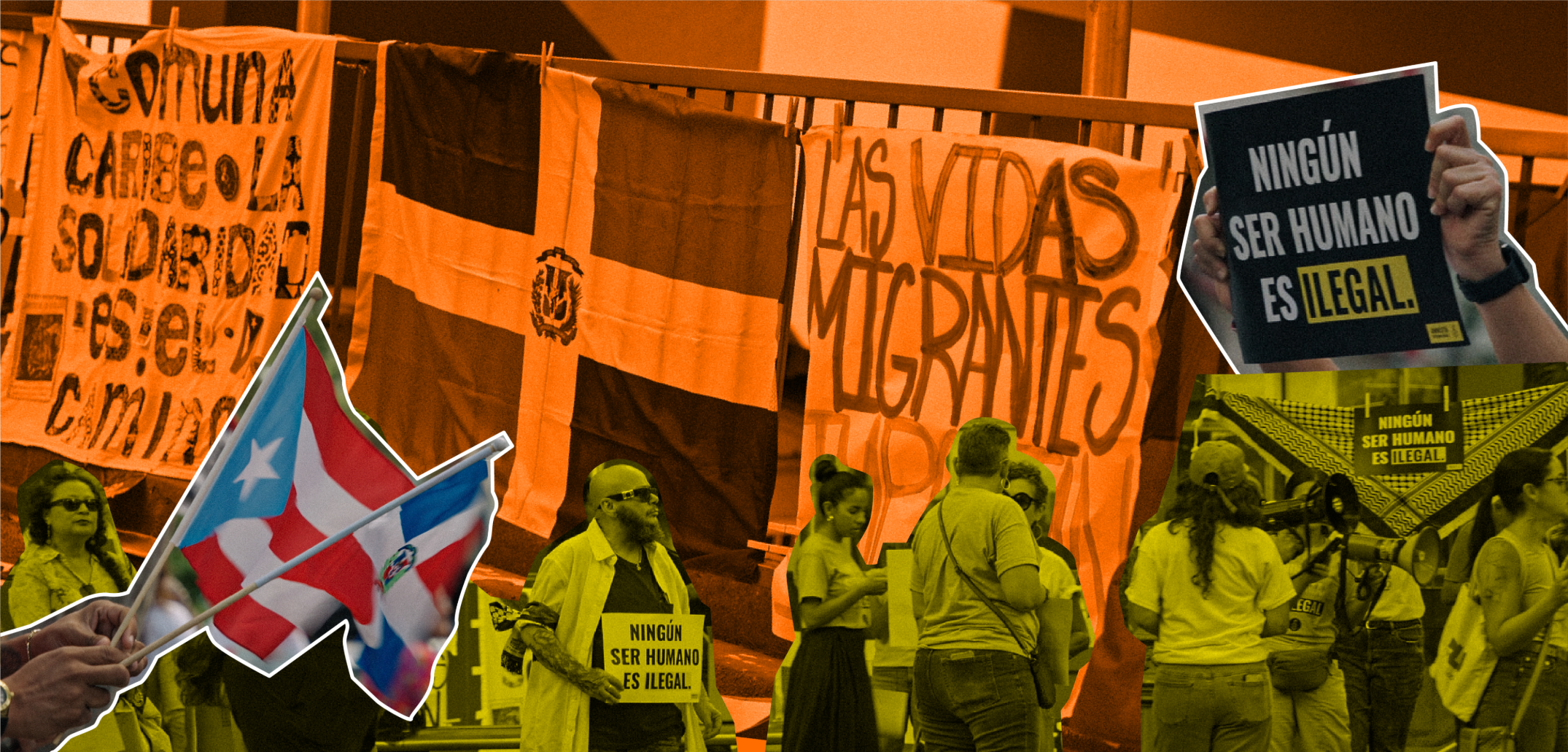
“Casa Alianza”: rescued building tells the story of political struggles in Vieques
VIEQUES —. This historic house, abandoned and deteriorated —at 486 Baldorioty de Castro Street— looks different today: an army of women has cleaned it and fixed it up.
Where a “For Sale” sign used to be, there is now a sign that reads: Alianza de Mujeres Viequenses (Vieques Women’s Alliance, in English). Here are gathered some of the women who fought for the health and peace for the people of Vieques against the U.S. Navy. On the entrance’s wooden door, there is a purple ribbon. The house is decorated and ready for the occasion.
Inside the building, a row of T-shirts with messages hangs from a string, as evidence of the political history on which the organization is founded: “Paz en la tierra. ¡No a la Guerra! (Peace on Earth. No to War!)”, “¡Fuera la Marina! Porque Vieques es nuestra casa (Navy Out! Vieques is our home)”, and “Viva Vieques Libre! (Long Live Vieques Free!)”. These are the T-shirts worn by the women who marched and fought for their rights. Among them, another one hangs with this message: “Vota 2 X Paz (Vote 2 X Peace)”, in reference to the 2001 referendum, in which 80% of Vieques residents voted for the immediate termination of the bombing and for the departure of the Navy.
“This is the symbol that shows how there was a struggle here,” shared Charissa Crispín Torres, activist and member of the alliance during the reopening ceremony of their headquarters known as Casa Alianza, which was held on July 15. Crispín Torres recalls that, at Casa Alianza, they listened to the results of the referendum, and from there they marched to the town square. At the time, she was a member of the Vieques United Youth and her mother was part of the Alliance.

The alliance originated in 1999, following the murder of security guard David Sanes after the Navy bombed the Cerro Matias observation post. The organization arose precisely to organize and make the women on Isla Nena more visible during the struggle against the U.S. Navy.
“Today, another part of that story begins,” Crispin Torres said. Her words marked the moment when the younger members of the alliance began to untie the purple ribbon at the front door. Together, they entered the historic house.
The reopening comes a year after talks were initiated to resume meetings, training and community organization. The young activists were interested in learning from the experience of the co-founders, in order to mobilize the people of Vieques in the causes that most impact them: the right to health, transportation and secure housing; the right to a decent standard of living.
Read more about la Alianza de Mujeres Viequenses
Zaida Torres emphasized that although Casa Alianza closed its doors in 2006, the women continued working and creating organizations such as Vieques en Rescate, which helps the citizens of Vieques that live with cancer. “We women continued working for the welfare and health of our people,” emphasized the member of the alliance.
In its reopening, Casa Alianza positions itself as a space to remember and continue the fight for the health and well-being of families in Vieques. In addition to political organizing, it will serve as a “safe space” to understand needs, connect with the community and provide appropriate services.
“They know that we aren’t only thinking about today, but about tomorrow as well.”
This space also honors the memory of those who fought for the rights of the people in Vieques. The walls of the building were filled with photos of the women who have been members of the alliance. They also prepared two altars —one for the Virgin of Carmen, patron saint of fishermen, and another for the members of the alliance who have passed away.
The alliance’s co-founder, Judith Conde, and Taller Salud’s executive director, Tania Rosario, signed a collaborative agreement in which the Loíza-based organization commits to support the alliance with operational expenses and workshops on reproductive health. Rosario recalled how Vieques was her school of political formation.
Other organizations from Vieques and other parts of Puerto Rico joined in celebrating the reopening, including Colmena Cimarrona, Vidas Viequenses Valen, the Vieques Film and Human Rights Festival, and the theater group Agua Sol y Sereno, who presented their play “Comer”, which inspired those present to reflect on the food system in Puerto Rico.

A Violated “Safe Space”
During the participants’ joyous celebration, two officers interrupted the event at Casa Alianza to file a criminal complaint against one of its youngest members: 20-year-old Katherine Martínez Medina was summoned to appear before the Fajardo Court. The state alleged that she “used violence or intimidation against public authority” at a previous demonstration that was held to protest the auctions held by the Municipality of Vieques.
“They entered a space, which we were celebrating as a safe space, of union, and once again the police force arrives to remind us that we have that ever-present threat,” commented Martínez Medina, in an interview with 9 Millones. She labeled the threat as the violence and repression of “the State, of the patriarchal and sexist system, which continues to try to prevent this union of women, this new force, from happening.”
“They know that we aren’t only thinking about today, but about tomorrow as well. They know all the wonderful things that can come from this coalition, threatens their power and stability,” she added.
The hearing, in which the court will determine whether there is cause for arrest, has been postponed to August 8. If the court finds cause for arrest, the State will have to prove there is cause for criminal charges, and then prove its case beyond a reasonable doubt. The Puerto Rico Penal Code imposes a three-year prison sentence for anyone found guilty of this offense.
Martínez Medina engaged in civil disobedience, along with a dozen women and supporters, to protest the auction mechanism used by the municipality of Vieques to sell public lots: these lots go only to the highest bidders and to those who had the ability to pay for 10% of the cost that same day of the auction.
“These are inaccessible conditions, the only ones who could auction were foreigners with high income. We organized ourselves and decided to be present that day so that the people of Vieques would not continue to be displaced,” said the woman, who said she felt stressed because of the citation, which she described as a form of intimidation. Nevertheless, she believes that the court will not find any cause against her.





